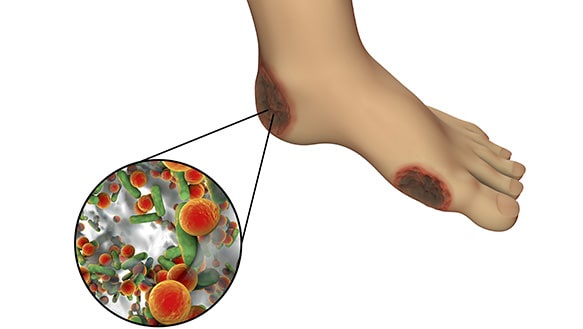Healing is a remarkable process that our bodies undergo to repair damaged tissues and restore normal function. Whether it's recovering from a minor scrape or a major surgery, our bodies have an innate ability to heal themselves. However, certain healing products and practices can help accelerate this natural process, getting us back on our feet faster and reducing the risk of complications. In this article, we'll explore various products and strategies that can speed up the healing process, ranging from nutritional supplements to advanced medical devices.
Understanding the Healing Process
Before diving into specific products, it's essential to understand how the healing process works. When our bodies experience injury or trauma, a series of complex biological responses are triggered to repair the damage. The immune system plays a crucial role in this process, mobilizing white blood cells to the site of injury to fight off infection and remove debris. Factors such as age, overall health, and the severity of the injury can influence the speed and effectiveness of healing.
Nutritional Supplements
Proper nutrition is essential for supporting the body's healing efforts. Certain vitamins and minerals play key roles in tissue repair and regeneration. Vitamin C, for example, is needed for collagen synthesis, while zinc is necessary for immune function and wound healing. Additionally, protein and amino acids are vital for building new tissue and repairing damaged cells.
Herbal Remedies
Many traditional herbal remedies have been used for centuries to promote healing and reduce inflammation. Plants like aloe vera, calendula, and turmeric have demonstrated anti-inflammatory and wound-healing properties. These herbs can be applied topically or taken orally to support the body's natural healing processes.
Topical Treatments
Proper wound care is essential for preventing infections and promoting faster healing. Various topical treatments, such as antiseptic ointments, hydrogels, and wound dressings, can create an optimal environment for tissue repair. These products help keep the wound clean, moist, and protected from external irritants.
Medical Devices
Advances in medical technology have led to the development of innovative devices that can aid in the healing process. Devices like negative pressure wound therapy systems and electrical stimulation devices can enhance tissue regeneration and promote faster healing. These medical devices are often used in clinical settings but may also be available for home use.
Physical Therapy
Movement and exercise play a crucial role in the healing process, especially for musculoskeletal injuries. Physical therapy techniques such as stretching, strengthening exercises, and manual therapy can help restore mobility and function to injured areas. Additionally, specialized modalities like ultrasound and electrical stimulation may be used to reduce pain and inflammation.
Mental Health and Healing
The mind-body connection plays a significant role in the healing process. Techniques such as mindfulness meditation, relaxation exercises, and cognitive-behavioral therapy can help reduce stress and anxiety, which can hinder healing. Maintaining a positive outlook and engaging in activities that promote emotional well-being can support overall recovery.
Alternative Therapies
In addition to conventional treatments, alternative therapies like acupuncture, acupressure, and chiropractic care have been shown to promote healing and reduce pain. These holistic approaches focus on restoring balance and harmony within the body, which can enhance the body's natural healing mechanisms.
Technology in Healing
The field of healthcare technology continues to advance, offering new tools and solutions for accelerating the healing process. From robotic-assisted surgery to wearable devices that monitor vital signs, technology plays a vital role in modern healthcare. These innovations not only improve patient outcomes but also enhance the efficiency of healthcare delivery.
Hydration and Healing
Proper hydration is essential for maintaining optimal bodily functions, including the healing process. Water helps transport nutrients to cells, flush out toxins, and maintain tissue hydration. Along with water, electrolyte-rich fluids like coconut water or sports drinks can replenish lost fluids and support hydration during recovery.
Sleep and Rest
Quality sleep is crucial for tissue repair and regeneration. During sleep, the body undergoes various physiological processes that promote healing, including the release of growth hormones and the repair of damaged cells. Creating a conducive sleep environment and practicing good sleep hygiene habits can aid in recovery.
Exercise and Healing
While rest is important during the initial stages of healing, gentle exercise can promote circulation, reduce stiffness, and prevent muscle atrophy. Low-impact activities like walking, swimming, and yoga can improve flexibility and strength without placing undue stress on healing tissues. It's essential to consult with a healthcare professional before starting any exercise program during recovery.
Common Mistakes to Avoid
In the quest for faster healing, it's important to avoid common mistakes that can impede the process. These include ignoring medical advice, smoking, poor nutrition, and excessive stress. By taking proactive steps to support the body's natural healing mechanisms, individuals can optimize their recovery and minimize the risk of complications.
Conclusion
Speeding up the healing process requires a holistic approach that addresses both physical and emotional aspects of recovery. By incorporating nutritional supplements, herbal remedies, medical devices, physical therapy, and other supportive strategies, individuals can enhance their body's ability to heal itself and achieve a faster, smoother recovery.


No comments yet